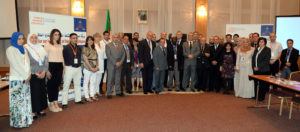As part of this event, represented by more than 50 participants including from the Ministry of Energy & Finance, academia & research institutes, as well as key energy companies such as Sonelgaz, Sonatrach and Naftal, the Algerian member committee also successfully completed its first Issues Monitor deep-dive which involved collecting Issues Survey responses from their network, which will be published in the Spring of 2017.
In an environment of continued falling oil prices through the past year, the issue of commodity prices has fallen in terms of uncertainty but remains high in terms of impact within Middle East and North Africa. Regional leaders clearly accept that we are now in a new oil price scenario but one that is of concern for local economies. This is reflected in the need for an increased focus on renewable energy.
In 2015 the energy trilemma appeared to be more balanced as Algeria’s performance on the environmental sustainability and energy security dimensions improved, mostly because of a significantly decreased economic dependence on fuel exports.
In recent years, Algeria has continuously developed its economy and improved its energy system. Energy policies have been implemented to intensify oil and gas exploration efforts to increase reserves, to promote renewable energy and energy efficiency and increase the share of renewables in electricity generation to 40% by 2030.
In February 2015, the Algerian Government adopted an ambitious Renewable Energy programme. It envisions the installation of 22GW of RE by 2030, which is almost double than what was set as a target before (12 GW) and equals a share of about 27% RE in total electricity production. Of these 22 GW, about 4.5 GW are supposed to be installed by 2020.
The Algerian government also announced a new national programme on energy efficiency (EE) for the years 2015 to 2030 targeting the transport and building sectors as well as industry. About 900 billion DA (about 8 billion EUR) are to be invested, of which the Algerian government will cover 54%. The objectives include the thermal insulation of 100,000 homes per year, distributing 10 million energy efficient lamps and switching 1.3 million vehicles to liquid petrol gas.
The government aims to use fuels which are widely available and least polluting, like LNG and natural gas, in order to reduce the use of gasoline. Gas is critical to the economic growth of countries such as Algeria. The growing regional trade in LNG is underpinning moves towards regional energy integration. LNG’s move to the centre of the World Energy Council’s 2016 Issues Monitor reflects the success of this growing intra-regional trade in securing improved regional energy security.






